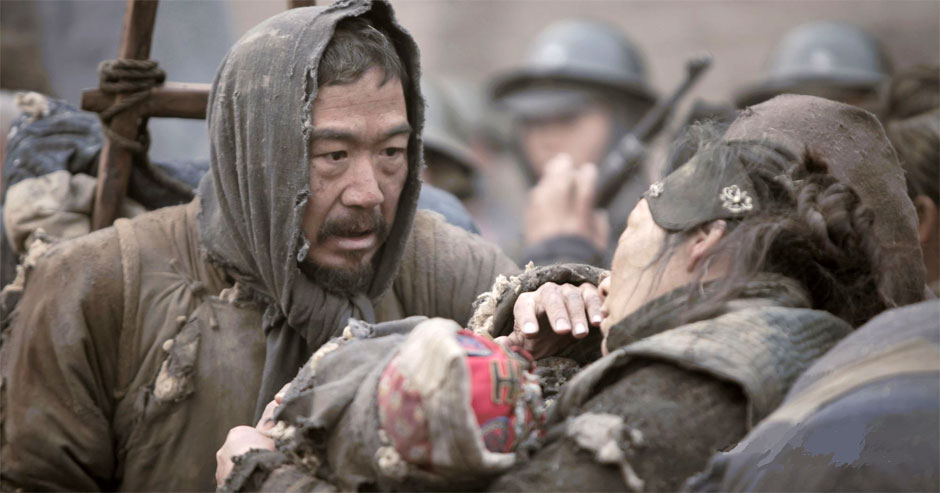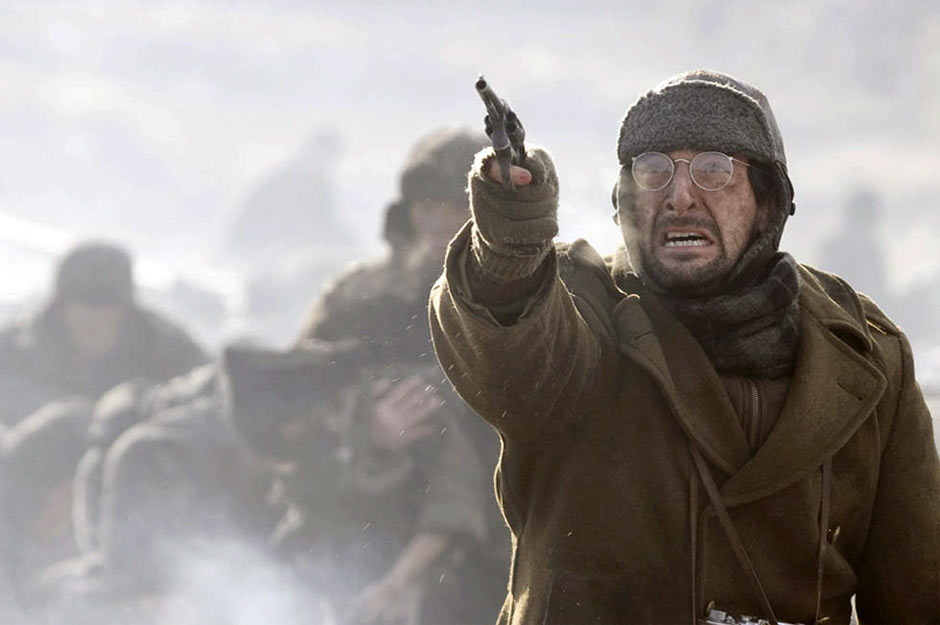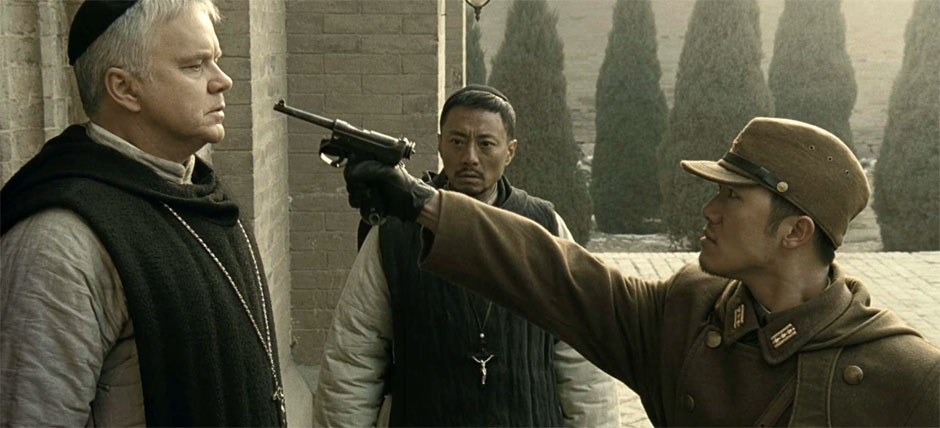By Candace Lee
Back to 1942 is a 2012 Chinese historical film directed by Feng Xiaogang. Adapted from the novel Remembering 1942 (一九四二) by Liu Zhenyun, the film Back to 1942 depicts in graphic and heartbreaking realism, the death and destruction wrought by World War II. Not on the battlefield but within the borders of China itself, a place overrun by displaced, starving Chinese citizens with no one to turn to for help. The film is set in Henan, a region hit by severe drought and locusts even before the throes of war have hit. The story mainly follows the family of a wealthy landlord struggling to survive across the desolate Henan landscape, occasionally cutting to the planning of the wartime effort elsewhere, where officials dictate resources and supplies, and in effect, the lives of ten million Chinese refugees suffering each day.
As the refugees face abuse from every direction, even from those charged with their protection, they must make the most of their shattered lives, going to lengths they never wanted or imagined they would be willing to go. From the opening scenes of Back to 1942, revealing the disturbing potential of human strife and ugliness under times of duress, to the massacres of innocents riddling the Chinese countryside, the movie presents an explosion of human desperation that is hard to face but crucial to as well.
A wartime film of a survivor’s recollection and raw emotion, Back to 1942 provides a chilling narrative of a bloody history, one many would like to forget but know never to; burying the refugees’ tales of pain and torment beneath shame and regret would be like denying their existence, ignoring the tragedy they faced. It’s a stance the film subsequently acknowledges through the inclusion of TIME reporter Theodore H. White.
White, an idealistic American who travels to Henan and walks briefly among the refugees, sees the atrocities of the dying Chinese people and the distinct absence of aid by the Nationalist Government whose members have even gone so far as to persecute the press for revealing the extent of the casualties and suffering. Awarded a Pulitzer, White is portrayed as a hero yet also takes the role of questionably immoral observer, taking the time to capture an atrocity on film rather than work to prevent it.
Back to 1942 provides a heartrending view of the universal tragedies of war, a gripping take on moral gray areas and wartime ethics that will have your heart in your throat and your eyes glued to the screen.




Leave a Reply